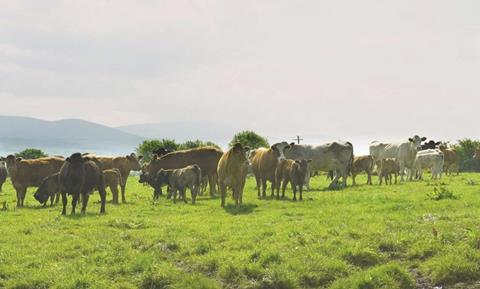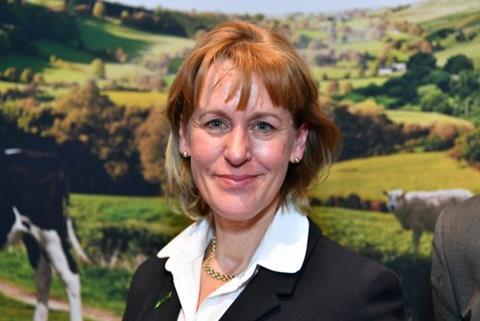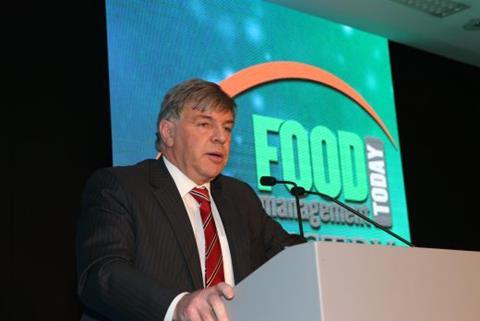The advisory Committee on Climate Change (CCC) has urged the Government to call for a significant reduction in beef and lamb production. It suggests that the number of sheep and cattle in the UK should be reduced by between a fifth and a half due to the emission of greenhouse gases.

The committee’s report states that pig and chicken production, on the other hand, is expected to increase because these animals produce less methane.
It is suggested in the report that the unused farmland generated from the reduction in beef and lamb farming is turned into forests to help “soak up CO2”.
The National Farmers’ Union (NFU) has spoken out against the suggestions.
NFU President Minette Batters said: "The NFU has been clear with its position on British farming's role in tackling climate change – reducing livestock numbers in the UK is not a part of that policy.
"We are disappointed to see the Committee on Climate Change include that recommendation in its report. The report simply does not recognise the environmental benefits grass-fed beef and sheep production brings to the UK.
"It would be a fundamental mistake to design a farming system solely around an approach that mitigates greenhouse gases without any regard to the wider impact of such a policy for our environment and our food supply. It risks producing a one-eyed policy."

Richard Stevenson, technical manager at National Craft Butchers, told Meat Management: “These recommendations are very short-sighted and appear to ignore the many benefits that livestock farming brings to the environment.
"There seems to be absolutely no recognition of the potential serious impact for farmers, craft butchers and meat suppliers in general.
"We hope that Ministers take a more balanced view of this issue and question their advisory committee on this occasion and ensure full impact studies are carried out before any decisions are made.”

Nick Allen, chief executive of the British Meat Processors' Association, has also shared his views: "There is no balance in the debate. Livestock emit methane, so 'all bad' is the simple commentary. However, they aid biodiversity, manage permanent pasture as an effective carbon sink and bring great swathes of the British countryside into food production that would not be used for growing food otherwise.
"Cattle and sheep turn naturally occurring grass, which humans can’t eat, into protein that we can eat. It is an efficient use of available resources to feed a growing population, with very few inputs needed from us. It also shapes our countryside that is so iconic and aids travel and tourism to the UK. It brings balance and is in harmony with nature.
"We must remember also that there is an environmental cost to all foods produced, and it is not the case that anything other than meat has zero impact. The UK remains a very sustainable place to produce beef and lamb, because of our geography and climate."

Meat analyst Jean-Pierre Garnier shares similar concerns. He said: “I am rather astounded by the recommendations of the committee, which propose a reduction of UK grassland of 26% to 36%, a reduction of beef consumption by 89% and lamb by 62%. The UK has probably the most extensive ruminant production in Europe with increasing hedgerows and tree numbers. Current data does not reflect the carbon sink and nutrient cycling effect of pastures.
"This report does not consider the current reductions of emissions and their medium-term trajectory. What about food production? The ‘wheel of land’ use in the report unbelievably only gives 8% importance in land use to food production. Replacing UK-produced food by imports is well-proven to result in more rather than less CO2 emissions. Again, we face the old mackerel of health benefits of eating less red unprocessed meat, a conformity bias without substance.
“It is important to note that the CO2 equivalent cost of producing ultra-processed meat ersatz is very high and not considered in the report. Worse of all, the committee says ‘decisions must be made quickly’. To reverse 3,500 years of British farming with shaky data and assumptions beggar belief.“

Chris Stark, chief executive of the Committee on Climate Change, told BBC News: “Climate change is going to change the way the UK looks – and we also have to alter the way we use land so we don’t make climate change worse.
“Brexit offers the Government the opportunity to introduce fundamentally new policies that will reward farmers for producing less greenhouse gases and for capturing carbon emissions.”
The Government report can be read in full by clicking here.
This story was originally published on a previous version of the Meat Management website and so there may be some missing images and formatting issues.















